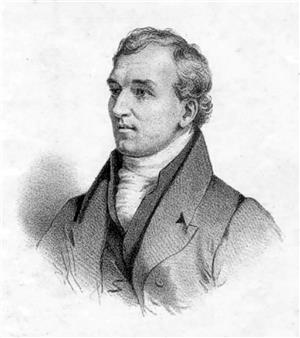In May 1826, Scottish botanist David Douglas (1799-1834) is guided south through the Colville Valley by two sons of retired fur trader Jacques Raphael "Jaco" Finlay (1768-1828), the founder of Spokane House. Douglas, who is on an extensive collecting expedition for England's Horticultural Society, is anxious to meet the elder Finlay, having heard that he is "a man of extensive information as to the appearance of the country, animals, and so on." Finlay and his family live at the old Spokane House, a former fur-trading post that Finlay had established in 1810 at the juncture of the Spokane and Little Spokane rivers near the present-day location of the city of Spokane.
By the time of Douglas's visit, Spokane House was no longer a trading post, the Hudson's Bay Company having moved operations to Fort Colvile some 70 miles north near Kettle Falls that April. Douglas and the younger Finlays arrived at Jaco's home just before noon on their second day out from Fort Colvile. "Mr. Finlay received me most kindly," Douglas writes in his journal, the only known account that contains details of Jaco Finlay's later life.
Speaking in a French tongue that Douglas had trouble understanding, Jaco apologized to his visitor for his meager hospitality, explaining that his family’s diet for the past six weeks had been limited to camas bulbs and "a species of black Lichen which grows on the Pines" (Douglas, 171). Fortunately, Douglas was well supplied with tea, sugar, and fresh game he had killed along his way, which he shared with his hosts. After lunch, the curious botanist recorded a recipe for the small cakes of roasted lichen on which the Finlays had been subsisting.
Douglas then introduced the principal object of his visit, which was to get the firelock of his musket repaired, Jaco “being the only person within the space of eight hundred miles who could do it, and being an item of the utmost consequence to have done soon” (Douglas, 171). After spending the afternoon on a long collecting walk up the Spokane River, the botanist returned to find that “Mr. Finlay had obligingly put my gun in good order, for which I presented him with a pound of tobacco, being the only article I had to give” (Douglas, 171).
Douglas spent two more days exploring around Spokane House, delivering the plants he found back to the patron of the house for inspection. Despite their language barrier, the two men were able to communicate about currant berries, onion varieties, and a species of mountain sheep with thick gray hair. Finlay promised to collect specimens and seeds for the naturalist and to bring back a “Mouton Gris” from a hunting trip in the mountains, then volunteered one of his sons as an escort back to Fort Colvile.
Later that summer, on August 3, Douglas passed back through Spokane. “At nine o’clock in the morning crossed the Spokane River to the old establishment on the south side, where we found old Mr. Finlay, who gave us an abundance of fine fresh salmon from his barrier, placed in a small branch of the main river” (Douglas, 182). When the travelers continued on their way after breakfast, Douglas’s journal held the last known description of Jacques Raphael Finlay, who died less than two years later.

